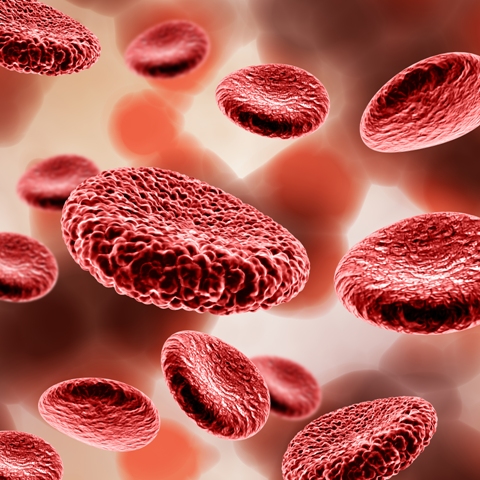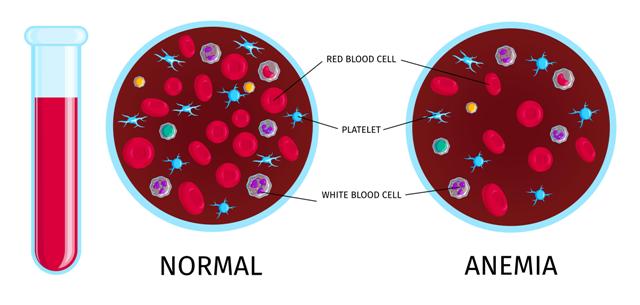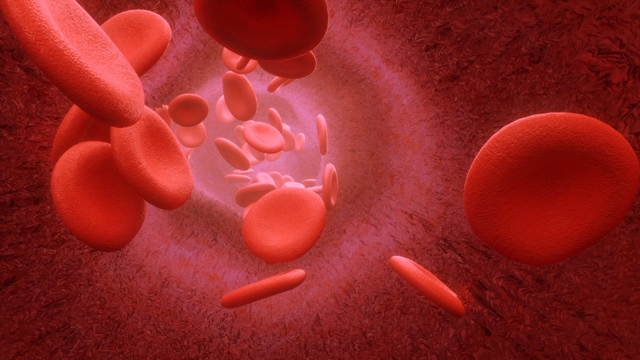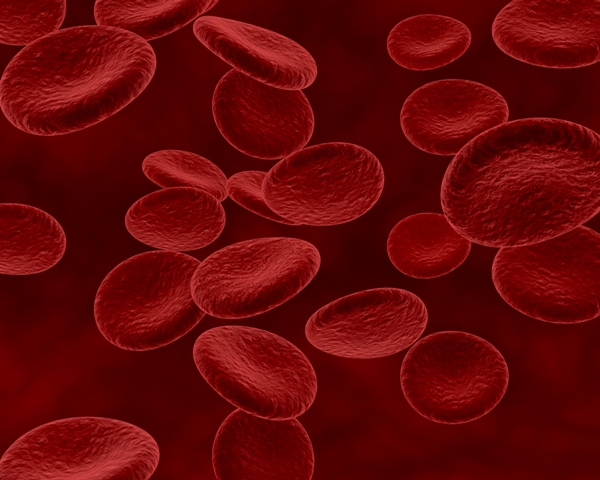Hemoglobin is an iron containing protein present in red blood corpuscles, helps in transporting oxygen throughout the body. It is mainly responsible for transporting oxygen from lungs to every cell and helps in their proper functioning. On the other hand, it is also related with carrying carbon dioxide away from every cell to lungs for expulsion. Moreover it is an extremely important protein required by the body for leading a healthy life and a drop in the level of hemoglobin can adversely affect the health thus it is always better to maintain a normal hemoglobin level.
It has seen that women generally contain lesser hemoglobin than men due to menstrual blood loss. It is estimated that the normal range of hemoglobin for male is 14 to 18g per dl whereas the normal level of hemoglobin for female is 12 to 16g per dl. When hemoglobin level drops then an individual may develop various health hazards such as anemia, shortness of breath, fatigue, dizziness, pale skin, brittle nail, headache, poor working ability, lack of stamina, rapid heartbeat, poor appetite, hair loss, soreness and inflammation of the tongue. During pregnancy a deficiency in hemoglobin level may cause various maternal complications and in severe condition it may cause death also
There are various factors responsible for decreasing hemoglobin level, like – poor dietary intake, especially poor intake of iron, protein, folic acid and Vitamin C rich food, poor absorption, adolescence pregnancy, multiple births, hepatic problems, urinary tract infections, hookworm infestation etc. Though some people have low hemoglobin count exclusive of any underlying cause. Often the symptoms are not manifested earlier, so it is always better to check your hemoglobin level at least once in 6 months for obtaining a better health


This article will discuss about basic 11 home based remedies for improving hemoglobin level naturally –
Intake of iron rich food
- Iron is an important mineral essentially required by the body for the synthesis of hemoglobin thus it is better to include iron rich food in diet in order to increase hemoglobin level
- It is also very effective for reducing the prevalence of anemia especially iron deficiency anemia
- Iron can be consumed through foods or iron supplements can also be taken. Though it is better to consume iron from natural sources because prolong consumption of supplements may cause various side effects
- Organ meat and liver, beef, shellfish, egg, broccoli, green beans, kale, cabbage, baked potatoes, tofu and other soy product, amla, pumpkin seed, cereal grains, green leafy vegetables, nuts, dates, raisins and jaggery are considered as the rich sources of iron thus they should be included in daily diet
Increase folic acid intake
- Folic acid is another important micronutrient also known as Vitamin B9 that plays imperative role in promoting hemoglobin production. It also helps in the production and maturation of red blood cells thus it is better to include folic acid in diet in order to enhance the hemoglobin level as well as the circulation
- It is also associated with decreasing the prevalence of megaloblastic anemia and birth defects
- Black eyed peas, avocadoes, kidney beans, rice, peanuts, chick peas, green leafy vegetables, meats are loaded with folic acid thus they should be incorporated in daily diet

Increase intake of Vitamin C
- Vitamin C or ascorbic acid plays important role in iron absorption, which ultimately helps the body to utilize iron properly for hemoglobin production
- It is always better to consume Vitamin C along with iron rich foods as it helps to enhance iron absorption from those foods
- Diet should contain citrus fruits (such as oranges, lemons etc), broccoli, tomatoes, strawberries, peppers, blackcurrants, Brussels sprouts, cauliflower, Winter squash, kiwi, papaya, cantaloupes, as they are considered as rich sources of Vitamin C
Include Vitamin E rich food in diet
- If you want to improve your hemoglobin level then do not forget to consume Vitamin E because Vitamin E helps to maintain the integrity of the membrane of red blood cell (RBC) as a result helps in promoting its function and normal functioning of RBC is closely related with enhancing blood circulation as RBC contains hemoglobin
- Wheat germ, plant oil, seeds and nuts are considered as the rich sources of Vitamin E thus they should be included in diet
Have red beet roots

- Consumption of red beet root is considered as another important way of improving hemoglobin level. It helps in preventing iron deficiency as it contains desirable amount of iron, which helps in promoting hemoglobin production whereas it is also associated with regenerating red blood cells
- It helps in preventing menstrual disorders as well
- It is also very effective for treating menopausal symptoms
Consume apples abundantly
- Apple plays significant role in maintaining normal hemoglobin level as it contains iron as well as other vital nutrients, which are essentially required by the body for healthy hemoglobin count
- You can consume one apple daily or you can also consume apple juice. It is better to prepare a juice with half apple and half beet root and its consumption twice a day significantly improves hemoglobin level

Incorporate spinach in diet
- Spinach is considered as one of the most important foods for improving hemoglobin level as it contains significant amount of iron, folic acid as well as Vitamin C thus its consumption is thought to be very effective for promoting the synthesis of hemoglobin and RBC
- While consuming spinach it should be kept in mind that raw spinach contains oxalic acid that hinders iron absorption, whereas prolong consumption of oxalic acid may also increase the risk of developing kidney stones thus it is always better to consume cooked spinach

Try moringa
- Consumption of moringa leaves or its supplementation is extremely useful for increasing hemoglobin level and red blood cell count as it contains abundant iron, folic acid and Vitamin C. It contains other nutrients as well thus its consumption not only helps in improving hemoglobin level but also helps to promote overall health status
- Its consumption is very useful for decreasing the susceptibility of anemia as well
Focus on effective processing of foods
- Processing plays vital role in enhancing the nutrient level in food thus it is better to opt for effective processing of iron and folic acid rich foods in order to enhance the bioavailability of nutrients
- Germination is considered as one of the most imperative processing that helps to increase the quantity of nutrients in many folds. It has seen that germination of pulse for 48 hours significantly improves the quantity of Vitamin C and other nutrients thus consuming germinated pulse is thought to be an effective way for improving the hemoglobin level
- Soaking of pulse in water for some hours before cooking is also considered as another important way for improving iron availability because it helps to eliminate phytate, which is responsible for suppressing iron absorption
- Consumption of iron fortified food is also very effective for enhancing iron intake, which ultimately helps to improve hemoglobin production

Have nettle tea
Nettle is an important herb loaded with iron, Vitamin C and folic acid thus consumption of tea prepared by nettle plays vital role in increasing hemoglobin level and RBC count
Avoid iron blocker
Tannin, phytate, oxalic acid, phytic acid are considered as iron blockers as they interfere with iron absorption thus it is better to avoid the consumption of those foods, which contain these components like tea, coffee, cola, beer, wine, sorghum, corn and grapes

Source:
Cade, J.E., Moreton, J.A., O’Hara, B., Greenwood, D.C., Moor, J., Burley, V.J., Kukalizch, K., Bishop, D.T. and Worwood, M., 2005. Diet and genetic factors associated with iron status in middle-aged women. The American journal of clinical nutrition, 82(4), pp.813-820.
Greenberg, J.A., Bell, S.J., Guan, Y. and Yu, Y.H., 2011. Folic acid supplementation and pregnancy: more than just neural tube defect prevention. Reviews in Obstetrics and Gynecology, 4(2), p.52.
Kuma, M.N., Tamiru, D. and Belachew, T., 2021. Hemoglobin Level and Associated Factors among Pregnant Women in Rural Southwest Ethiopia. BioMed Research International, 2021.
Man, Y., Xu, T., Adhikari, B., Zhou, C., Wang, Y. and Wang, B., 2021. Iron supplementation and iron-fortified foods: a review. Critical Reviews in Food Science and Nutrition, pp.1-22.
Nivedita, K., 2016. Knowledge, attitude and practices of pregnant women regarding anemia, iron rich diet and iron supplements and its impact on their hemoglobin levels. International Journal of Reproduction, Contraception, Obstetrics and Gynecology, 5(2), pp.425-432.
Paulino, L.S., Angeles-Agdeppa, I., Etorma, U.M.M., Ramos, A.C. and Cavalli-Sforza, T., 2005. Weekly iron-folic acid supplementation to improve iron status and prevent pregnancy anemia in Filipino women of reproductive age: the Philippine experience through government and private partnership. Nutrition reviews, 63(suppl_2), pp.S109-S115.


